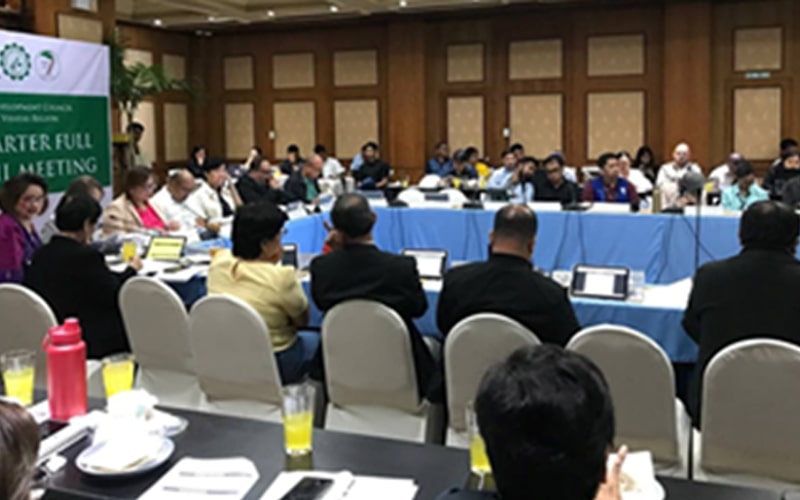
TAGBILARAN CITY, Bohol (PIA)—There is a need for the country’s Technical Education and Skills Development Authority to develop competency standards for medical receptionists, secretaries and administrative assistants.
The Regional Development Council in Region 7 (RDC-7) has put, in its development plan for 2023-2028, strategies to boost health and nutrition promotions for social development, but it also noticed that there have not been any established minimum standards for medical receptionists.
For this, many enter the workforce without adequate education or training.
In a study this year, Economic Research Institute said that approximately 54 percent of medical secretaries in the Philippines have completed only secondary education, and that there are no industry standards for the required training and competencies, the RDC Social Development Committee reported.
Medical receptionists, secretaries and administrative assistants who work in the front office of health care facilities like out-patient clinics handle basic clerical tasks including welcoming patients, organizing medical records, processing paper work and scheduling appointments.
As the first point contacts with patients, a professionalized standard can usually help form in the patients the impression of a quality medical services and wholesome patient experience, the RDC led by Bohol Governor Erico Aristotle said.
In Norway, medical secretaries need to earn an authorization and a license, while in the United Kingdom, the National Health Service developed competency frameworks for medical administrative and clerical staff, before they can work in the medical front offices.
As more and more countries established regulations for these medical front-office workers, the RDC sees the need to put up requirements, certifications and professional conduct standards to ensure high-quality support in healthcare environments.
The Philippines continues to battle with negative patient interaction, poor communications, administrative errors, inappropriate behavior ang privacy violations, the RDC Social Development Committee noted.
The development of a competency standard will ensure that the first contract in the health care system are well-trained and competent, so that patients get more consistent and reliable care leading to improved health seeking behavior and better health outcomes.
Proposed core competencies for training which the Aumentado-led council proposed for TESDA to develop are in patient service standards; to enhance patient experience including handling difficulty or challenging patient behavior and effective communications; which involve the ability to convey information clearly end emphatically, in words and deeds to actively listen and respond.
Then there is Law and Ethics in healthcare, which include understanding and applying legal and ethical standards in health care like confidentiality, consent and professional conduct.
Also a part is computer and Information technology which revolves around using the personal computer systems and software in managing patient information.
Appointment management as well as records management are also seen as needs to properly coordinate patient appointments, medical documentation and Basic First Aid where medical front-liners can provide initial medical assistance in emergencies like Cardio Pulmonary Resuscitation, would care, injury and trauma management.
The development of a competency standard will ensure that the first point of contact are well-trained and competent; making 6the patients get more consistent and reliable care, which could also lead to improved health-seeking behavior and better health outcomes.
Moreover, the RDC also requests the Department of Health, Philippine Medical Association and the Philippine Hospital Association to support the development of the competency standard and lend their expertise in the course design. (RAHC/PIA-7/Bohol)

